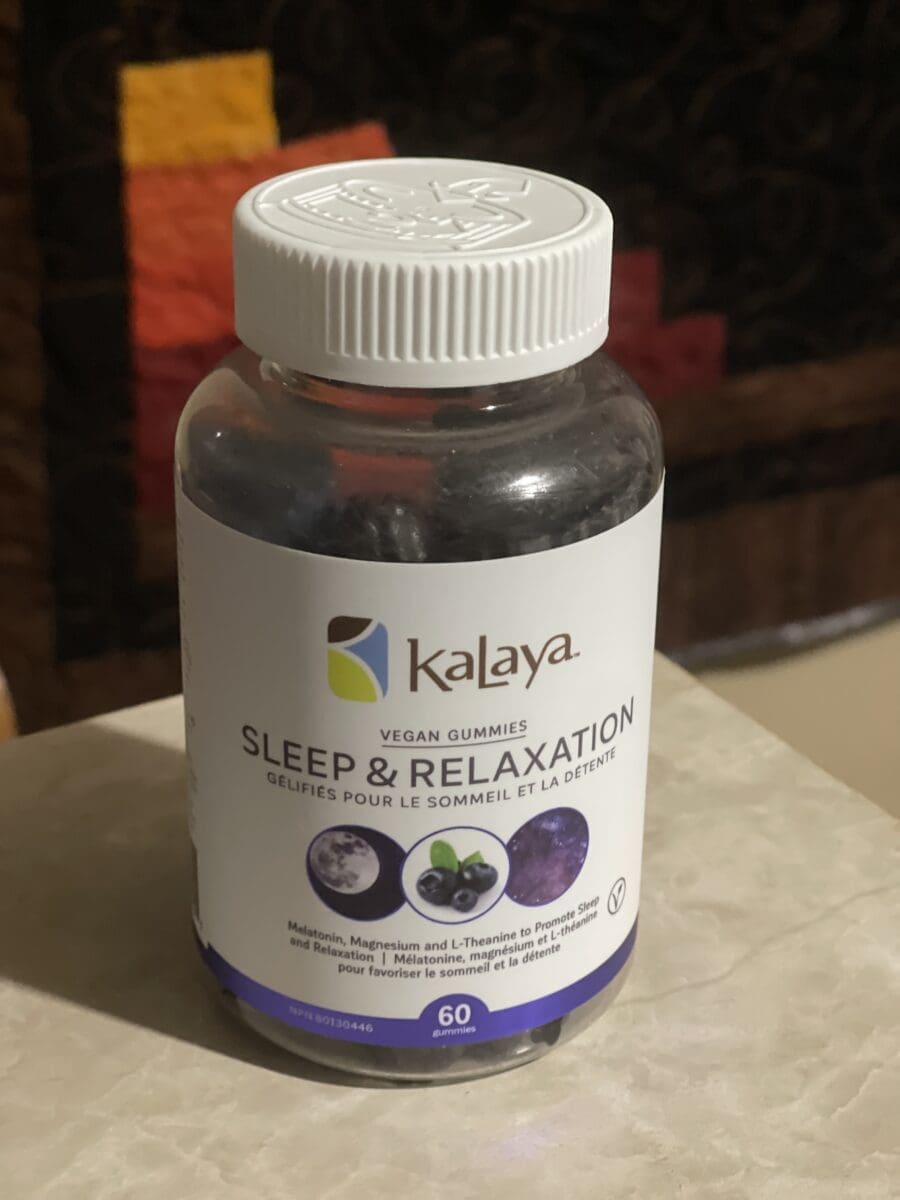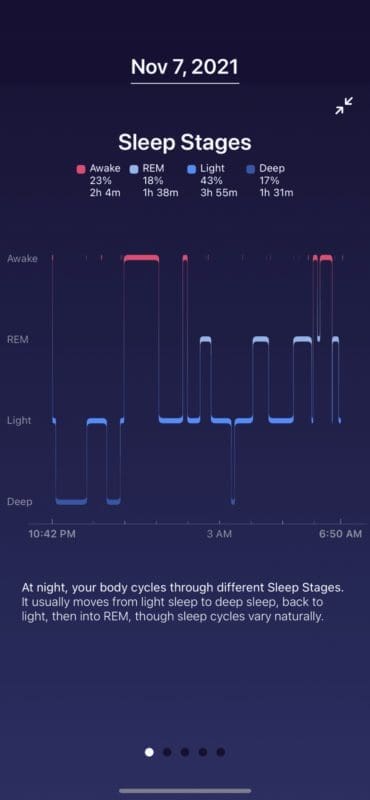KaLaya vegan sleep and relaxation gummies were recommended to me by Alexa. I’m assuming it was listening to us talking about our sleep issues, because we never actually looked it up. That was a little creepy, but, still, on point.
My husband has been having a hard time sleeping throughout the night, and we’ve been wondering if sleeping pills will help him. I have been having some trouble falling asleep now and again due to excessive thoughts, and I was also wondering if sleeping pills would help me.
I know my dad took sleeping pills when he was working through the stress of being diagnosed with Lupus many years ago, and it seemed to help him, so we both have been thinking more and more about our options.
We need our sleep! I’m cranky and useless without it. And my husband’s MS symptoms act up if he doesn’t get enough sleep.
KaLaya Vegan Gummies Ingredients

They contain a few key ingredients, including:
L-Theanine 100mg – L-Theanine is good for sleep because it promotes relaxation. It also helps to reduce anxiety and stress, making it easier to fall asleep.
Melatonin 3mg – Melatonin is a hormone that helps regulate your sleep-wake cycle. Taking melatonin supplements is supposed to help improve the quality of your sleep and make it easier to fall asleep.
Magnesium 30mg – Magnesium has been shown to help with sleep by promoting relaxation and reducing muscle tension.
KaLaya vegan gummies are vegan (duh) and are made with tapioca syrup, cane sugar, monk fruit juice concentrate, agar, citric acid, pectin, trisodium citrate dihydrate, natural fruit flavor, caramel, medium-chain triglycerides, and carnauba wax.
Are these ingredients healthy?
Firstly, tapioca syrup is a sweetener made from cassava root and is often used as an alternative to corn syrup. It is considered safe for consumption in small amounts but has a high glycemic index and may contribute to blood sugar spikes.
Next, cane sugar is a common form of sucrose that provides quick energy but can also lead to weight gain and other negative effects when consumed in excess.
Monk fruit juice concentrate, is a natural sugar substitute that doesn’t seem to have any negative side effects.
Agar, a gelatinous substance derived from seaweed, is used as a thickening agent and is generally considered safe for consumption.
Citric acid, derived from citrus fruits, is often used as a natural preservative and to add a tangy flavor to food products.
Pectin, another common ingredient in fruit-based products, serves as a gelling agent and is also believed to have health benefits such as improving digestion and lowering cholesterol levels.
Trisodium citrate dihydrate is an additive that helps regulate the pH levels in food products. While it has been linked to some potential negative effects when consumed in large amounts, it is generally recognized as safe by regulatory agencies.
Natural fruit flavors, such as strawberry, banana, and blueberry, are often used to enhance the taste of food products. These flavors can be derived from real fruits or created artificially using chemicals. However, they are considered safe for consumption and do not pose any major health risks.
Caramel color is a common additive used to give food products a brown coloring. Why that’s needed is beyond me. It is created by heating sugar or carbohydrates and is also used in beverages such as cola. While there have been concerns about the potential health effects of caramel color, studies have not shown any significant negative impact on human health.
Emulsifiers are additives that help mix ingredients that would normally separate, such as oil and water. They can be found in many processed foods. Medium chain triglycerides (MCT) are a type of emulsifier that is often used in low-fat and fat-free products to improve texture and mouthfeel. While MCTs are generally safe, consumption should be limited as they can have a laxative effect.
And lastly carnauba wax, also known as Brazil wax, is a natural wax derived from the leaves of the carnauba palm tree. It is commonly used as a glazing agent in candy and other foods to create a shiny appearance. While there have been some concerns about its safety when consumed in large amounts, it is generally considered safe for consumption in small quantities.
Have The Gummies Helped Us Sleep Better?
Nope.
I’m a big believer in the placebo effect, and I believed these would work, so I thought these gummies would put me straight to sleep, but they haven’t.
My husband hasn’t noticed a difference one way or the other, but he does like the taste of them.
I have noticed a difference, but it’s opposite of what I want.
I find that I am more alert after taking them.
Moreover, I’ve been waking up and laying around for an hour or more thinking before I can fall back asleep, which NEVER happens to me.
The ironic thing is that I’ve been thinking good thoughts, not bad ones. I’ll focus on meditation or intuition. I’ll feel gratitude for things. I’ll think about what I want to accomplish and how I can do that.
It’s like these gummies boost my focus and motivation and give me energy.
Therefore, when I feel like taking a nap at home, I’ve been taking these gummies to see what happens, and I’ve found that I skip the nap and gain some sort of ability to keep going and do things that I need to do!
I’m not tired.
I’m not low energy.
I’m focused and motivated and able to bang out things on my to-do list.
I have to wonder if one of the ingredients is something I’ve been needing to improve cognitive abilities.
It seems like both L-theanine and magnesium may be good for increased focus, so maybe that’s the reason I’m so awake and focused after taking them.
But, in the end, I can’t recommend these gummies to help improve your sleep. They haven’t worked for us, even though I heavily believed that they could when we first got them.

